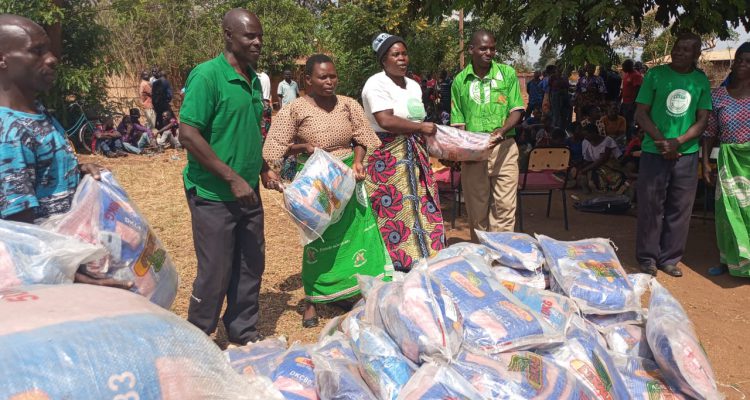
Communities in Dowa and Kasungu districts have hailed the Livelihoods support programme being implemented by COMSIP Cooperative Union Limited for introducing the Legume Enterprise Structure Programme (LESP) in their areas.
The members say through the program in which they contribute 30 per cent; they have managed to become food secure while at the same time starting up small-scale businesses from profits realized from the sale of surplus.
They said this on Monday during a media tour COMSIP organized for Dowa and Kasungu.
Under the program, participants contribute 30 per cent towards the purchase of farm inputs while the rest is shouldered by the livelihoods support program, a sub-component of the Social Support for Resilient Livelihoods Project, which COMSIP is implementing.
Eluby Phiri of Masaka Cluster in Kasungu said through the inputs she got from COMSIP-identified agro-dealers, she managed to harvest 22 bags of maize weighing 50 kilograms each from an acre last year.
“After selling the surplus, I have been able to support my son’s education through fees and other school requirements,” she said.
Phiri says she expects to have an increased yield this growing season as she has already bought the farm inputs under the COMSIP project.
Grace Chombo, a community facilitator at Masaka Cluster in T/A Wimbe Kasungu, said the project had assisted farmers in buying certified seeds from certified agro-dealers.
“In the past, we were not able to afford to buy the inputs, but now we can buy a quantity we want depending on the size of our farmland,” she says.
Rebecca Munthali, a COMSIP caseworker in Dowa under Traditional Authority Dzoole said the LESP program has seen increased profits for the participating households through the sale of surplus.
“Different households have been able to set up group businesses while individual households have been able to invest in livestock and purchase family assets through proceeds from the sale of farm produce,” she said.
The Chairperson of the Khwema cluster in Dowa, Gremison Kachikonga, said through the project, farmers can increase the number of inputs based on the sizes of their farmland.
Kasungu District COMSIP coordinator Christina Josiya said in an interview that through the project, they would like to alleviate poverty and ensure food security among households.
“We are happy that since the project started, several households have been transformed as some have been building houses, paying fees for their children and buying livestock,” she said.
She further said through the program, participants are given funds for every farm input ranging from fungicides, pesticides, masks, sprayers, and fertilizer to best seed varieties. Farmers are also embracing actionable climate-smart agriculture practices, including producing and applying Mbeya manure in their fields that replenish fertility and moisture for crops.
The organization has invested K2.6 Billion in LESP this farming season to enhance food security and income generation in participating households, supporting farm inputs grants to 844 Savings and loans groups and cooperatives and 27,321 households (10,002 males and 17,376 females) in 15 districts.
The beneficiaries are households on social cash transfer and public works programme under the SSRLP, a government of Malawi project being implemented with funds from the World Bank and Social Protection Multi Donor fund.
Through the project, COMSIP is expected to be the off-taker of the produce and will identify other markets for the project’s participants to get fair prices from their labour.
Currently targeted districts in the southern region have already procured the farm inputs.














